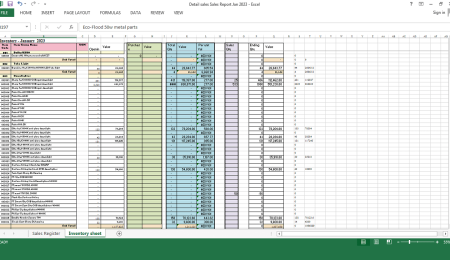MS Office: The Ultimate Office Tool with No Competition
MS Office stands tall as the unrivaled champion. This suite of applications has become indispensable in workplaces, educational institutions, and homes around the world. But what makes MS Office so exceptional, and why does it have no serious competition? Let’s delve into the history, features, and advantages of MS Office to understand why it remains the ultimate office tool.
History of MS Office
Microsoft Office made its debut in 1990, introducing a revolutionary way to handle office tasks. Initially, it included only a few basic programs, but its robust functionality quickly garnered widespread acclaim. Over the years, MS Office has evolved dramatically, continuously adapting to the changing needs of users and integrating advanced technologies to stay ahead of the curve.
Core Components of MS Office
Word: The Essential Word Processor
MS Word is the go-to tool for document creation and editing. Its intuitive interface, powerful formatting options, and comprehensive spell-check and grammar tools make it ideal for everything from simple letters to complex reports.
Excel: The Powerhouse of Spreadsheets
Excel’s capabilities extend far beyond basic spreadsheet functions. With its advanced data analysis tools, pivot tables, and charting features, Excel is essential for anyone needing to manage and interpret data efficiently.
PowerPoint: Creating Compelling Presentations
PowerPoint enables users to craft visually appealing presentations effortlessly. Its range of templates, animation options, and multimedia support ensures that presentations are not only informative but also engaging.
Outlook: Managing Emails and Schedules
Outlook is more than just an email client; it’s a comprehensive personal information manager. It integrates email, calendar, contacts, and tasks, streamlining communication and scheduling.
Access: Database Management
For database solutions, MS Access provides a user-friendly platform to create and manage databases, generate reports, and automate tasks with ease.
OneNote: Note-Taking and Organization
OneNote offers a versatile digital notebook for organizing notes, ideas, and information. Its synchronization across devices ensures that users can access their notes anytime, anywhere.
Advanced Tools in MS Office
Publisher: Desktop Publishing
Publisher is perfect for creating professional-quality publications. It simplifies the design process for brochures, newsletters, and other marketing materials.
Teams: Collaboration and Communication
Microsoft Teams has become essential for remote work and collaboration. It integrates chat, video conferencing, and file sharing, fostering seamless team communication.
SharePoint: Document Management and Storage
SharePoint facilitates efficient document management and collaboration. It allows organizations to create websites for information sharing and document storage.
OneDrive: Cloud Storage Solutions
OneDrive provides secure cloud storage, enabling users to access and share files across devices. It ensures data is backed up and accessible from anywhere.
Visio: Diagram and Flowchart Creation
Visio is the tool of choice for creating detailed diagrams and flowcharts. It helps visualize complex processes and systems with ease.
Project: Project Management
Microsoft Project offers comprehensive project management tools, including scheduling, resource management, and task tracking, to keep projects on track.
Integration and Compatibility
One of the standout features of MS Office is its seamless integration across applications. Users can easily embed Excel charts in Word documents or include PowerPoint slides in Outlook emails. Additionally, MS Office is compatible with a wide range of other software and platforms, ensuring smooth workflows.
Why MS Office Stands Out
User-Friendly Interface
MS Office’s user-friendly interface makes it accessible to users of all skill levels. Its consistent design across applications reduces the learning curve and enhances productivity.
Comprehensive Features
The suite offers a comprehensive set of features that cater to various needs, from simple document editing to complex data analysis and project management.
Regular Updates and Support
Microsoft regularly updates MS Office, introducing new features and enhancements to meet evolving user requirements. Moreover, robust customer support ensures users can resolve any issues quickly.
MS Office in Education
Enhancing Learning and Teaching
MS Office tools like Word, Excel, and PowerPoint are integral to the modern classroom. They facilitate the creation of lesson plans, assignments, and presentations, enhancing both teaching and learning experiences.
Tools for Students and Educators
Students benefit from tools like OneNote for note-taking and Teams for collaboration on group projects. Educators use Excel for grading and data analysis, ensuring efficient management of academic activities.
MS Office in Business
Streamlining Operations
Businesses rely on MS Office to streamline operations. Outlook manages communications, Excel handles financial data, and Teams fosters collaboration, ensuring smooth workflow.
Productivity Enhancement
MS Office tools are designed to enhance productivity. Features like automation in Excel and project tracking in Project help businesses achieve more in less time.
Data Analysis and Reporting
Excel’s advanced data analysis capabilities and Access’s database management tools are invaluable for generating insights and making informed business decisions.
MS Office for Personal Use
Managing Household Tasks
From budgeting with Excel to creating family newsletters with Publisher, MS Office is a versatile tool for managing household tasks efficiently.
Personal Productivity
Tools like OneNote help users organize personal information, while Word and PowerPoint assist in creating personal projects and presentations.
Customizability and Flexibility
Templates and Customization Options
MS Office offers a wide range of templates to jumpstart projects. Users can customize these templates to fit their specific needs, adding flexibility to their workflow.
Adaptability to Different User Needs
Whether for professional, educational, or personal use, MS Office adapts to meet diverse user needs, making it a versatile solution for various tasks.
Security and Reliability
Data Protection Measures
MS Office incorporates robust security features to protect user data. Encryption, secure cloud storage, and regular security updates ensure data remains safe.
Consistent Performance
Users can rely on MS Office for consistent performance. Its stability and reliability make it a trusted tool for critical tasks.
Cost and Licensing Options
Various Pricing Tiers
MS Office offers various pricing tiers, from basic plans for individual users to enterprise solutions for large organizations, ensuring affordability for all.
Subscription vs. One-Time Purchase
Users can choose between subscription models like Office 365, which provides regular updates, or a one-time purchase option for a standalone version.
Comparisons with Competitors
Google Workspace
While Google Workspace offers robust online tools, MS Office’s comprehensive offline and online capabilities give it an edge in versatility and functionality.
Apple iWork
Apple iWork is a solid suite for Mac users, but it lacks the depth and range of features that MS Office provides, especially in business environments.
OpenOffice and LibreOffice
OpenOffice and LibreOffice are popular free alternatives, but they fall short in terms of the advanced features, integration, and support that MS Office offers.
Future of MS Office
Upcoming Features and Improvements
Microsoft continually innovates MS Office, with upcoming features focusing on AI integration, enhanced collaboration tools, and more intuitive interfaces.
Microsoft’s Vision for the Future
Microsoft envisions MS Office as a central hub for productivity, integrating advanced technologies to further streamline tasks and enhance user experience.




Leave a Comment